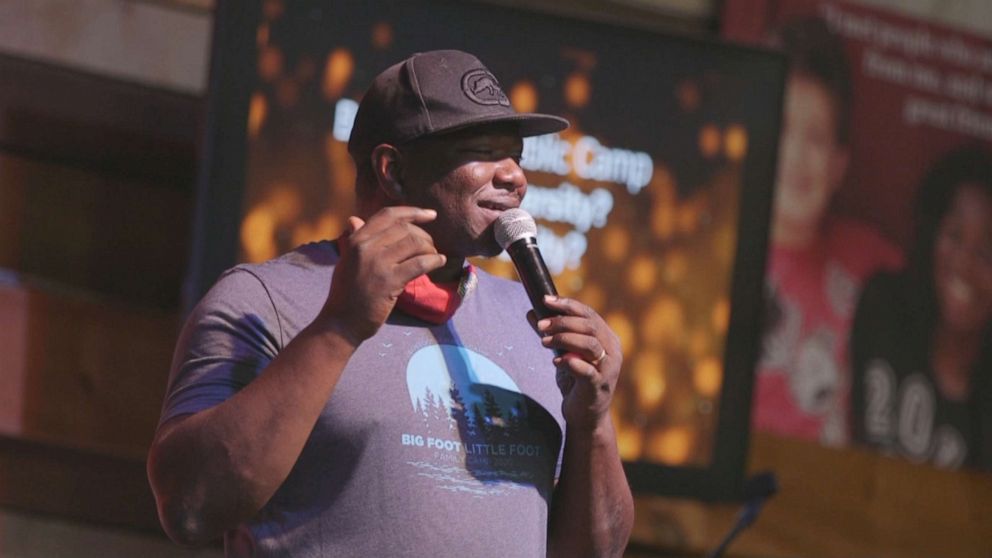Summer camp aims to foster racial reconciliation through its diverse community, Christianity
This report is part of "Turning Point," a groundbreaking series by ABC News examining the racial reckoning sweeping the United States and exploring whether it can lead to lasting reconciliation.
Nestled in the mountains of southern Kentucky, Barefoot Republic looks like any other summer camp. On warm days, campers enjoy horseback riding and ziplining. But under the guise of these summer nights and campfires is an experiment in racial reconciliation that’s been ongoing for almost 20 years.
“If you know Barefoot, we are very focused on diversity and bringing people together from other backgrounds,” said Tommy Rhodes, founder and executive director of the Christian camp.
Barefoot Republic was built on the audacious idea that anti-racist education can happen at summer camp. The process is simple: bring kids and families together from different backgrounds in hopes of fostering life-changing relationships.
“Being a Barefoot is really a spiritual posture, and if all you can see is somebody's feet, you know, you don't know if they're a prince or a pauper," said Rhodes.
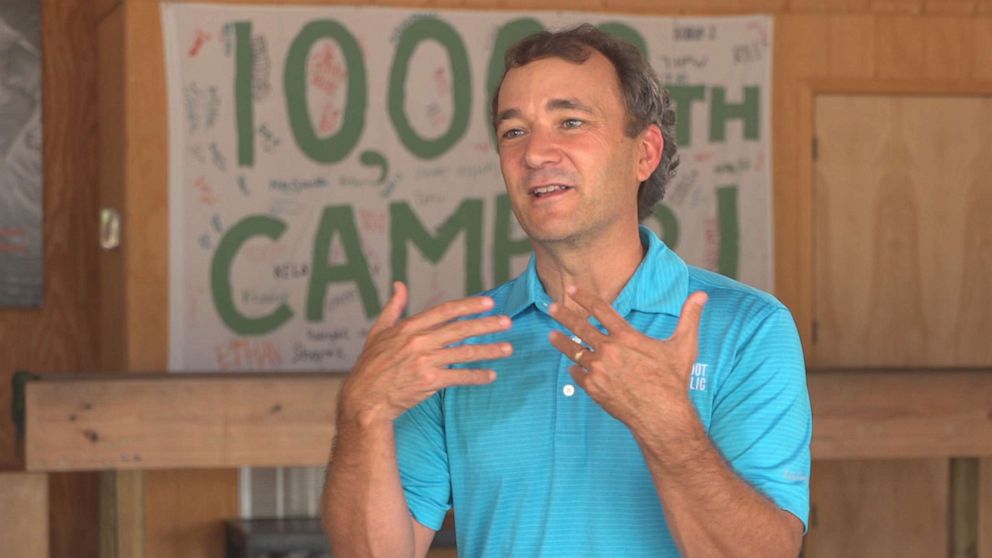
Rhodes said that he drew from his own life experiences and his devout Christian faith to craft the camp’s mission.
“I grew up in a Japanese American family in a small town in Alabama where it's all Black and white, and I just felt like I didn't really fit in,” he said. “I experienced just a lot of racism, a lot of prejudice.”
Rhodes said Barefoot provides an opportunity to come together and, instead of being “colorblind,” acknowledging the beauty in diversity.
“I have a lot of people that come alongside me and just say, ‘Tommy, I'm so excited about your mission. You know, I've always taught my kids to be colorblind.’ And I just have this pit in my stomach when I hear that," Rhodes said. "You know, God created us to see color. God actually created color, and for us not to see and acknowledge our differences, we're missing out on so much of creation."
The camp typically hosts over 2,000 campers each summer, but this year the COVID-19 pandemic upended everything. In April, when the camp realized that traditional summer camp wouldn’t be a safe option, it pivoted to what it called Barefoot All Access, a family camp model in which a small group of families could come to rest and relax.
In August, 10 families gathered at the camp's expansive grounds for a weekend. The Saber family is one that attended. Kevon Saber is of Persian descent and his wife, Annie Saber, was born in Taiwan. They said they live in a predominantly white neighborhood and that they wanted their three little girls to learn more about diversity.
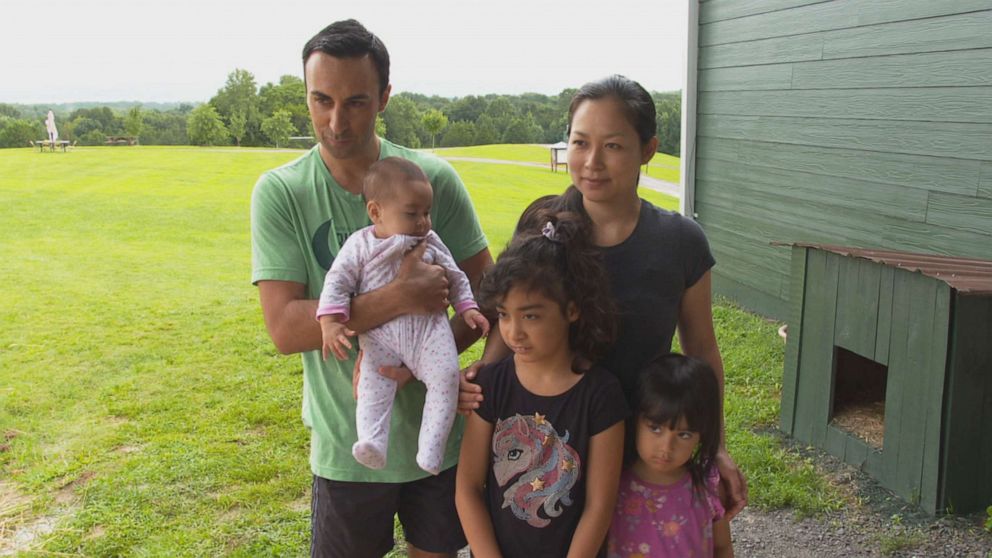
“The power of diversity is really when people have the opportunity to learn from each other,” said Kevon Saber. “And so, when I look at my daughters' classroom yearbook photo, for example, and see that every other child is fully Caucasian, I think, ‘Wow, my daughter's missing out.’ There's a lot that she can learn from a more diverse classroom where the children are actually interacting and telling their stories.”
The Dominguez family, a mixed-race family that also camped at Barefoot, said it’s important for their children to understand that “people are people.”
Father Leoncio Dominguez, who was born in Mexico, said the U.S. is facing a particularly difficult moment when it comes to race relations.
“It’s hard for what has happened for so many years here in the U.S., where people of the Black community have been persecuted," Dominguez said. "There is some movement in saying, ‘Hey, let's call it for what it is and let's step up and take responsibility where responsibility needs to be taken."
His wife, Amy, said that Barefoot can be a key step in the path towards reconciliation.
"The beauty is bringing people into a safe place, which I think is key...where, you know, you're going to be honored. And let's actually deal with this stuff. Let's talk about it. Put it out on the table and not dance around it," she said.
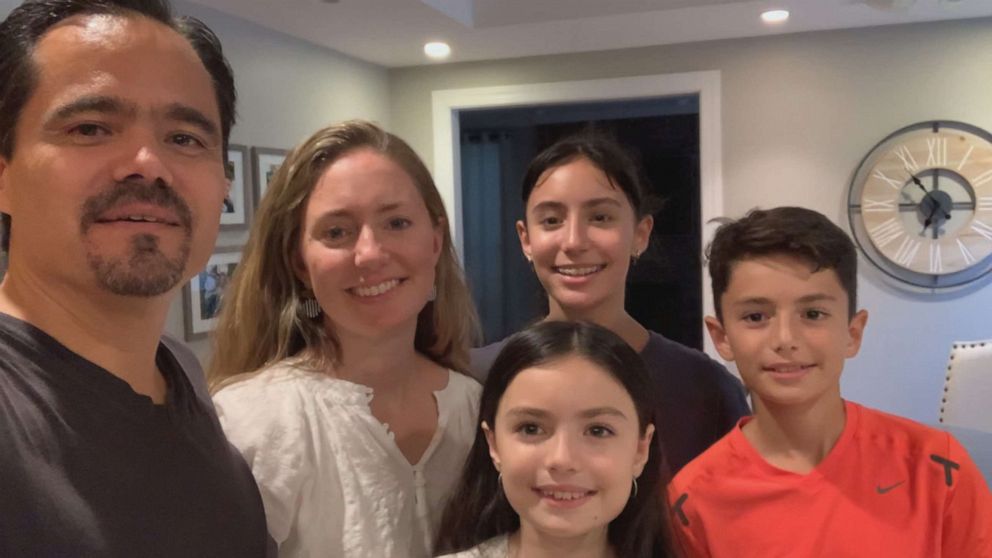
After a summer that spurred more racial justice movements across the country, Thomas Rose, Barefoot’s director of community relations, said that he sees this moment as an inflection point and a reminder that these issues have long existed.
“For the first time ever, I believe that everybody's eyes have been opened to see that there still is a racial issue in this country,” said Rose.
"We thought once we had an African American president that, you know, 'Oh, racism must be gone now. It's over. We finally made it.' And then when you have a situation like George Floyd and that bomb gets thrown into the water, all of the issues come back up again," Rose said.
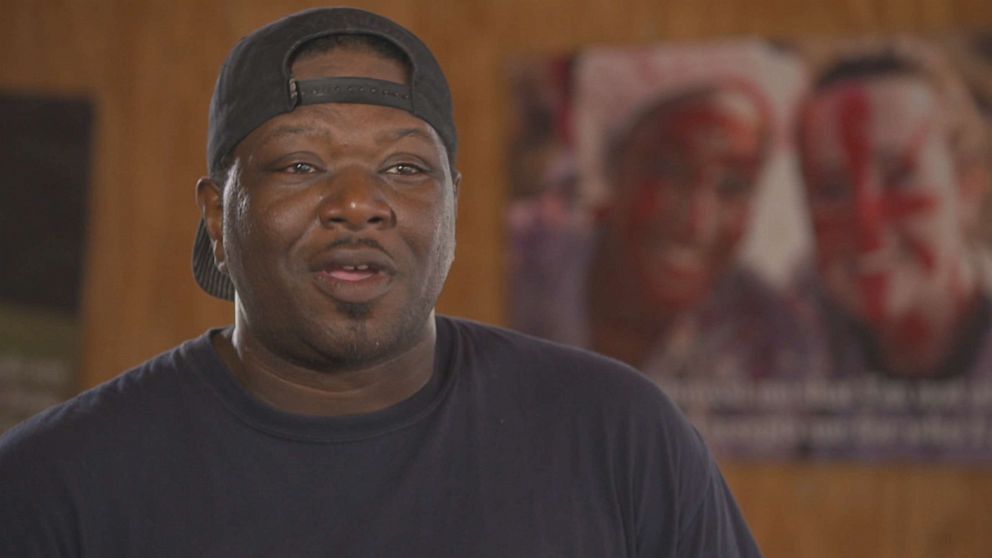
When Barefoot opened in 2002, Rhodes said that one of the biggest challenges was attracting affluent, white campers. Barefoot reserves half of its spots for low-income campers and strives to keep white campers in the minority.
“We came to the conclusion that there is a lot of fear associated with sending your kids to a place where they were gonna be in the minority,” said Rhodes, who added that white people tend to be in the majority in “most of the experiences we have in America.”
Despite going to Barefoot for years, the Damschroders, a white family, said this year was still eye-opening with regard to the racism that pervades American society.
“I didn't really recognize that there was a problem until people kind of started speaking out about it,” said Molly Damschroder, 14. “And it's really kind of changed my perspective on what a lot of people go through that I don't see and I don't understand because I have the privilege of not having to go through all that stuff.”
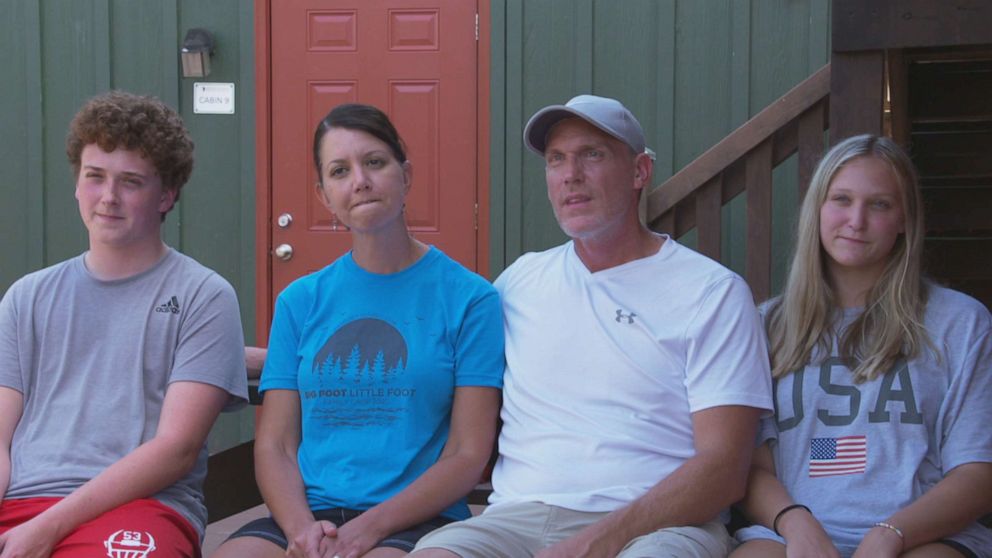
Megan Davis, a camper turned counselor, said that the experience at Barefoot has shaped who she is as a person.
“It totally changed my life,” said Davis, who first attended the camp in 2006.
Davis hails from a rural community in nearby Tennessee, and says that she didn't experience much racial diversity in her hometown.
"What I liked about Barefoot, what I remember from being a camper, is that you're in a room and you're no longer the main [majority] in the room, and that was just a really cool experience," she said.
Davis, who now works at a Juvenile Hall in Orange County with children who are incarcerated, said that Barefoot, and the friends that she has made there, helped prepare her for a role as a therapist.
“Barefoot kind of prepared me to know that there is a spectrum of trauma that people experience, there’s a spectrum of normalcy that people experience. But there's also always opportunities just to be present with people and to love them,” said Davis.
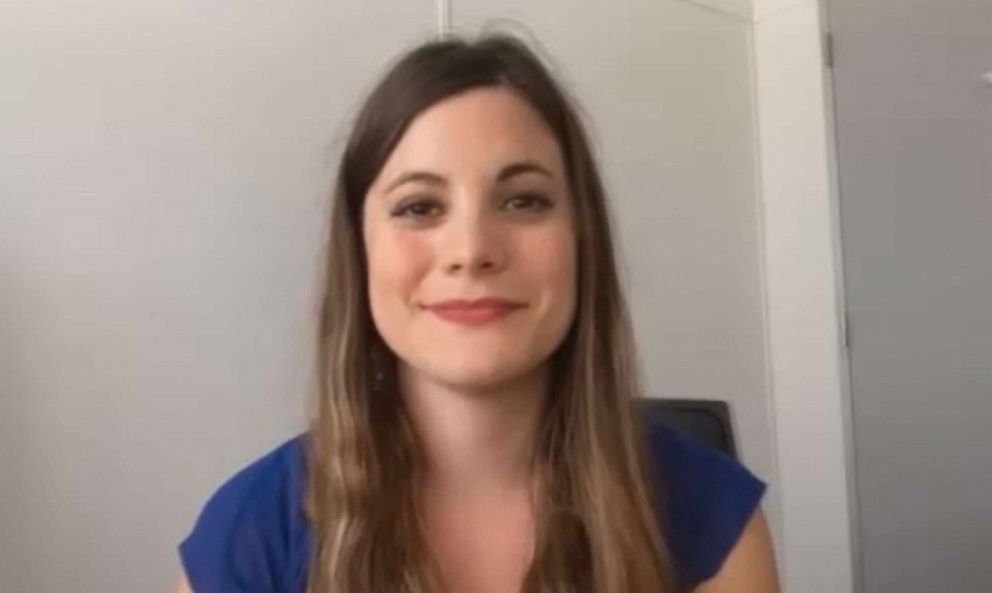
“[My Barefoot friends help] me understand, one, the complexity of everything, but also how do I think about the issues? How do I advocate for people who don't look like me? How do I actually make a difference instead of being someone who's talking about making a difference?” she added.
Rhodes said that one of the beautiful things about Barefoot is that “it truly is a family.” For Sharon Brown and her 10 biracial children, she thinks that the camp should be a model for other institutions looking to do real, meaningful work: “I think everybody has something that they can learn from Barefoot… This is the future.”
“When I think about a just society, a society that is as it ought to be… I think it's gonna look like Barefoot,” said Saber. “Barefoot, as a result, is a taste of heaven and something that I look forward to very deeply every year.”
